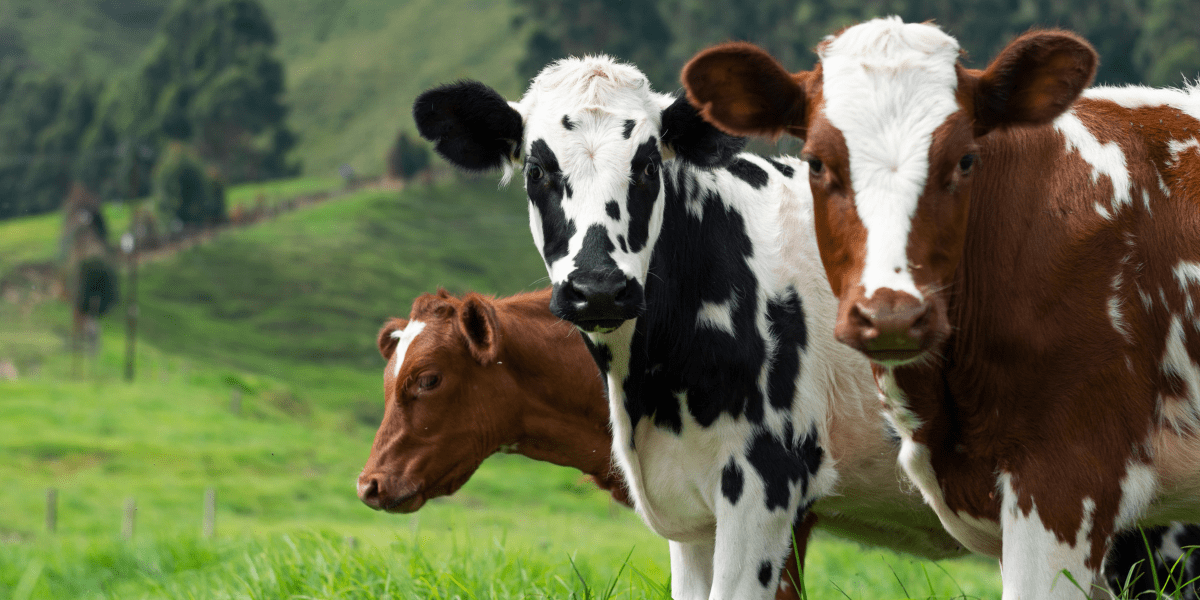What is the proper management for dairy cows?

Ensuring animal welfare not only guarantees quality of life for the herd but also positively influences production efficiency, the work environment, reduces losses and costs, opens market opportunities, and improves the quality of the final product.
One of the pillars of animal welfare is the appropriate management of each species, which also applies to the proper management of dairy cows.
According to Compassion in World Farming, in 2022, more than 92 billion animals were raised for food globally, and 280 million dairy cows produced 730 billion liters of milk.
Based on consumption trends observed in Asia, it is evident that consumers are becoming increasingly aware and demanding a higher standard regarding the products they purchase, especially concerning animal welfare and sustainability.
One example is from a recent report by Deloitte which highlighted that Indian consumers are becoming more value-conscious, prioritizing purchases that reflect their concerns about the environment, health, and animal welfare.
This shift in consumer behavior is directly linked to the growing awareness of the conditions in which animals are raised and the impact these practices have on both product quality and the environment.
As a result, companies that adopt proper management practices and ensure animal welfare not only meet an ethical demand but also position themselves more competitively in a market where consumer loyalty is increasingly influenced by these factors.
Furthermore, as reported by the Asia Food Journal, the food and beverage industry in Asia is undergoing a transformation with emerging trends reflecting a greater demand for healthy, safe, and ethically produced food.
Proper management of dairy cows preserves the health of the animals and allows them to exhibit their natural behaviors, keeping them calm and reducing injury and mortality rates.
Care for reproduction, herd health, and management, for example, makes all the difference.
Want to learn more about this topic and understand how to properly manage dairy cows? Keep reading!
Reproductive care improves productive efficiency
The more positive the management of cows is during artificial insemination and the subsequent period, the more efficient the herd’s productivity becomes.
Special attention should be given to the thermal environment of the cows’ housing, as excessive heat can increase embryonic losses and make estrus detection more difficult.
The quality of calf rearing also directly impacts the productive and reproductive performance of future cows.
Here are some important observations:
- 24 months is the recommended age for the first calving.
- The ideal average is one calf per year, or one calving every 12 months.
- Proper management requires placing the cow in a shaded paddock or maternity pen with free access to water and quality feed 30 days before calving.
- The dry period should average 60 days to prepare the mammary gland for milk production.
Management and human-animal interaction
In the proper management of dairy cows, animals should be handled calmly, without shouting or sudden movements, using techniques that respect natural behaviors and do not cause stress or injury.
Here are some welfare guidelines related to herd management:
- Animals should not be pulled or lifted by the tail, skin, ears, or limbs.
- Calves should only be moved when carried, led, or transported safely. Pulling or dragging them is prohibited.
- During calving, interference should occur only to assist in birth, and induced labor should not be used routinely.
- The umbilical cord of newborns should be immersed in an antiseptic solution.
- Animals unable to walk should be treated immediately.
- Marking with cuts, ear notching, or facial marking is prohibited, except for sanitary reasons required by a veterinarian.
- Dogs must be trained not to harm or distress cattle and must be controlled at all times. Dogs are prohibited in the milking parlor.
Management
Proper management of dairy cows cannot be implemented if farm management is not familiar with animal welfare standards and the specifics of each species. Therefore, it is essential to provide adequate training to all managers and staff, including:
- Training to identify and address the stress factors that dairy cows may face.
- Knowledge of the emergency action plan for procedures in cases of fire, drought, or flooding.
- Availability of herd records and quarantine and medication procedures for inspection by animal welfare certifiers.
Herd Health
Ensuring the health of dairy cows requires developing an Animal Health Plan (PSA), which should be regularly updated with veterinary guidance, and constantly monitoring the animals’ performance.
Measures include:
- Observing the occurrence of production diseases, infectious diseases, and injuries caused by inadequate housing or management.
- Treating animals suffering from diseases or injuries immediately and seeking veterinary assistance whenever necessary.
- Subjecting animals brought from other origins to a quarantine period.
- Inspecting and caring for hooves at least once a year.
- Evaluating and recording herd laminitis biannually.
- The removal of supernumerary teats should be performed before puberty, with the use of pain relief medication.
- Disbudding can be done up to 3 weeks of age, using cauterization and pain relief medication.
- Horn removal should be performed only by a veterinarian, using a sedative or local anesthesia and an anti-inflammatory.
- Tail docking is prohibited, but trimming the brush is allowed.
- The farm should be prepared to perform euthanasia if necessary, with the procedure carried out by a trained employee or a veterinarian, and the carcass disposal should comply with local regulations and requirements.
Learn more about best practices in animal production management!
Published on March 20, 2025



